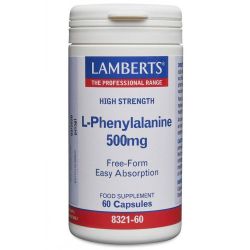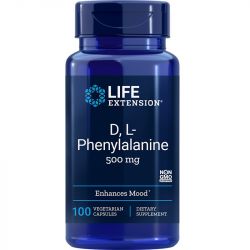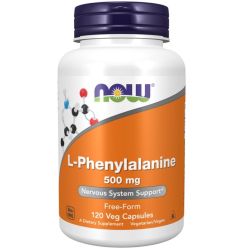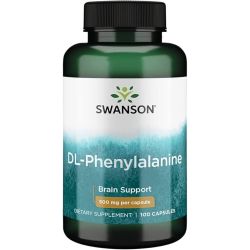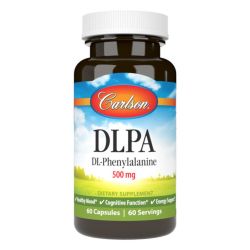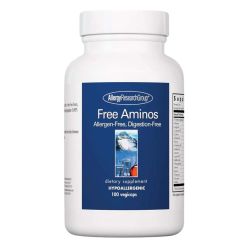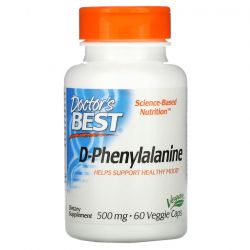Phenylalanine Supplements
Phenylalanine is an amino acid that is used by our bodies to create molecules and proteins. There are two types of phenylalanine – L-phenylalanine and D-phenylalanine, and they each have their own unique molecular composition. L-phenylalanine is used to produce proteins in the body and can be found in many foods that are both animal and plant-based. D-phenylalanine is used in medical treatments. Phenylalanine is important for ensuring the health of the nervous system and the way the brain sends messages around the body. It can also be used to treat disorders of the skin, administer pain relief and treat depression.
All you need to know about Phenylalanine
What are the benefits of phenylalanine?
Phenylalanine can be used to treat skin conditions such as vitiligo. Used alongside UV light, phenylalanine can treat problems with skin pigmentation. It can also increase dopamine production in the brain, help to treat depression, and can contribute to pain relief. Taking phenylalanine along with other amino acids can help to treat alcohol withdrawal, as well as Parkinson's Disease and ADHD.
How much phenylalanine should I be taking?
Phenylalanine is considered safe as long as dosage is followed correctly. You should consult your doctor before taking amino acid supplements to ensure the correct dose for your health goals. There is no risk for healthy people to take phenylalanine, as long as doses between 23-45mg per pound of body weight are followed. If you are pregnant however, it is not advisable to take phenylalanine supplements.
What are the side effects of phenylalanine?
Generally, there is a very minimal risk of experiencing side effects when taking phenylalanine supplements. If you are pregnant, you should not take phenylalanine until your doctor has confirmed it is safe to do so. If you suffer from an amino acid metabolism disorder like phenylketonuria, you should not take phenylalanine because of the body's inability to properly process it. High concentrations of phenylalanine can cause problems with brain function and could potentially cause brain damage.
Which foods contain phenylalanine?
Phenylalanine is commonly found in high-protein foods such as poultry, red meat, white meat, milk, cheese, eggs, soybeans, fish and nuts. Some low-sugar soft drinks that are sweetened using aspartame may also contain a source of phenylalanine.

